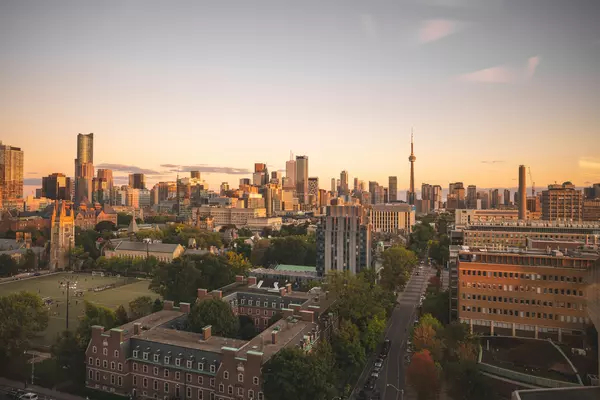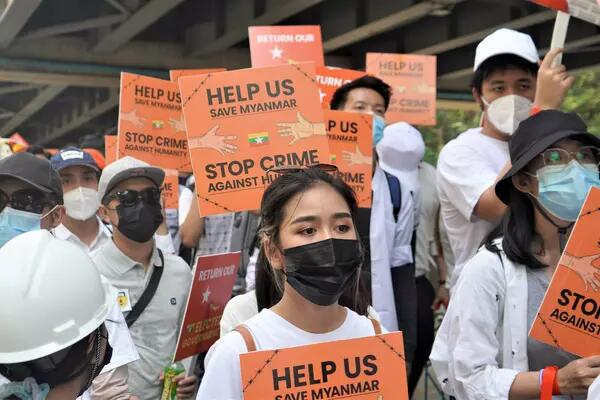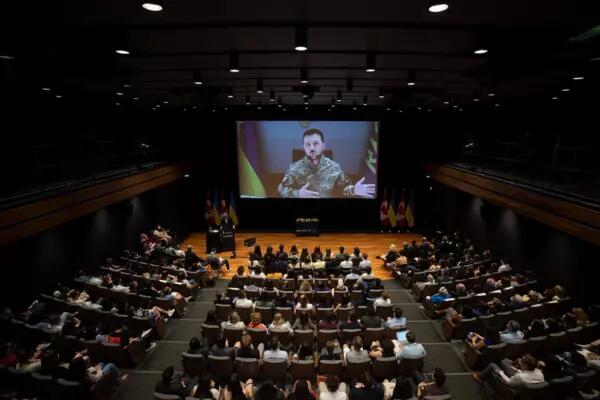Deanna Horton is a senior fellow at the Munk School of Global Affairs and Public Policy. Her long career in foreign affairs has brought her to the original negotiation tables of the North American Free Trade Agreement (NAFTA), to Hanoi as Ambassador of Canada to the Socialist Republic of Vietnam, to Washington as Minister in the Canadian Embassy, and to the role of Director of the Office of the Deputy Minister for International Trade. Deanna’s work with the Munk School has focused primarily on Canada-US and Canada-Asia relations, and has included Mapping Canada in Asia, an interactive map detailing Canada’s impact and involvement in various sectors across Asia.
We asked her some questions about her Munk School fellowship, the changing face of Asia, and the shifting role of Canada in the changing world order.

Much of your long career has been Asia-centric. How would you describe Asia’s change over the past 2 decades, and Canada’s shifting role in Asia?
Asia is the big growth story in terms of the global economy but I still find Canada to be a very Atlantic-oriented country. I would like Canada to be more of a Pacific-oriented country and to play a greater role in Asia. We are members of the Comprehensive and Progressive Agreement for Trans-Pacific Partnership (CPTPP), and that's a good thing, but there are so many other ways that we can make a contribution. Also, I'd like Canada to expand its perception of possible partnerships in Asia. Most Canadians only think of China when they consider Asia, and while China is by far the largest market, there are a lot of other Asian countries that Canada could partner with, and not just in market activity.
I think we should start looking at places like Japan, Korea, and Singapore. There are lots of other countries in Asia whom I think are appropriate partners for tackling all the issues Canada is facing globally.
We don't have enough Canadians learning Asian languages or studying overseas in Asia. I think that there are so many ways that Canada can improve its profile there and that there could be more opportunities for young Canadians there. Asia is critical to Canada's future. I just finished some work on a piece on the digital economy in Asia, a sector with many opportunities for Canada to play an integral part of the market.
There’s also been a lot of discussion on global security and I agree with the most recent government announcements on increasing our military presence. And this isn’t only the broad understanding of hard military, but also soft military. This means services such as training programs and support in other areas we can offer help in terms of improving overall security.
How should Canada approach balancing the preservation of liberal democracies with maintaining positive and collaborative relations with Asian countries?
One of the things that I want to emphasize is that Canada can help in promoting democracy and that the digital economy is a key strategic sector where we should increase our presence. The expansion of the digital space underpins how we can promote liberal democracy, through things such as digital economy trade agreements. Canada has a lot to offer in terms of support, advice, and infrastructure for countries developing their digital economy, expanding their e-commerce workplaces, and growing their small and medium size enterprises (SMEs). What the digital economy offers to entrepreneurs all around the world is its ability to sell products globally without needing to have a physical presence. This is key especially for SMEs with consumer-facing products and services that lack the same resources as large corporations.
The important thing is open data and open exchange of information. This means SMEs, civil society, and regular citizens having access to any information they need. This is particularly important because information is data, and data is what drives the global economy, especially the digital economy. Therefore, we need to ensure the free flow of data. And there are a lot of actors who are trying to impinge on this free exchange of information and access to information that is critical to liberal democracy and open markets. So from that perspective, this is where Canada comes in.
And any talk on democracy will include a discussion on diversity. Canadian Indigenous groups have a lot of expertise in preserving and promoting Indigenous culture and exchange. There are a lot of Indigenous groups across Asia, and this could be an area for Canada to take a leadership role. Perhaps technical assistance and capacity building within these communities to preserve and promote their cultures.
You’ve co-authored many research reports, including recent ones on trade coercion, US-Cuban relations, and Canadian tech companies within the Chinese marketplace. In an era of misinformation, partnered with a shifting in the global world order, what is the role of non-partisan research?
We are in an era where good research and sound information is critical. And to elaborate on my previous point on the ability of organizations or individuals to get their message out, this is another area to protect against intrusions by bad actors. And again, this could be a place for Canada to expand their leadership. Ensuring that the regulations that govern the digital economy are fair, and that surveillance capitalism does not expand to the extent that no one feels safe. Data privacy and protection is important to many people. There's so much information out there. How do you possibly know what is "real information" and what isn't?
I think the problem is that we all live in ‘bubbles of information’. We tend to read things from people we agree with, and that is a problem in itself. We need to ensure that we get information from people we don't agree with and to develop the capacity to say, “I don't agree with this, but I understand where this person is coming from.”
And I think that the polarization that is taking place is largely because people are living too much in bubbles and aren’t willing to listen to others. In order to understand, you have to have empathy for the people you don't agree with, and to try and understand where they're coming from. Even if you look at bilateral and multilateral relationships between countries — at its core, they’re just like relationships between individual people. You really do have to work on these relationships and keeping commitments to them. And that includes protecting information and promoting the free exchange of information and data.
Collaborative efforts at research, particularly with peers who have different specialties as yourself, often produce the most fulsome results. The Munk School has a wide and diverse slate of research fellows, professors, and students with a broad range of expertise. How has being a fellow at the Munk School impacted your own research work?
One of my bigger projects was the Creating Digital Opportunity project that was run out of the Innovation Policy Lab. Through that, I was able to work a lot with my colleagues at the Munk School and around the world, but also with great Munk School students. Over the years, I've had about 15 Munk School research assistants and they have all brought their own perspectives to projects that I'm working on. They were able to demonstrate their data management and analytical skills, and data visualization because a lot of work that I do is in that area. I started with that particular project in 2015 and wrapped it up a few years ago, and it was a great experience. We came up some with some very interesting presentations and I did interviews and all kind of different engagements with the media and also with students and think tanks. So that's been really great.
I also do work at the Canada Institute at the Wilson Center in Washington, DC. And that's also been very rewarding along with the Asia Pacific Foundation and the Canadian Global Affairs Institute. I recently did a session with the Canadian Global Affairs Institute on critical minerals and zero-emission vehicles. I don't know anything about it, but I researched it and I moderated an absolutely great discussion and learned a lot. That’s what I love doing and what makes a fellowship unique. It’s similar to being a diplomat, where you end up having knowledge is a mile wide and an inch deep. I have some deeper knowledge in some areas, but I'm naturally very curious. So, if someone offers me an opportunity that’s interesting but outside my area of expertise, I’ll still do it. And I think that's where fellows differentiate themselves from the academics. We're not deeply immersed in one specific area, but rather bring a broad array of different interests and experience.
Many have described these current times as one of the decay of democracy, far-rightism, and a global reordering. As a fellow at the Munk School, you have the chance not just to conduct research, but also interact with students. What role do you think universities play, both in preparing students to enter the world but also contributing to the global reordering?
That's a big question. Frankly, I'm very distressed at the state of the world that we're heading to. But when I think about myself from many years ago when I was also doing a Master's in International Affairs, today's generation is so much better prepared than we were. This generation of students has way more knowledge. They have a lot more experience. Even high schools are emphasizing community engagement and things like that. We really do live in a globalized community, but we can't possibly pay attention to everything. And I think that that is one of the issues.
We all have information overload. But if you follow your interests, you can go almost anywhere. And I hope that today's students will have that opportunity to do so. I think that's what the role of the university is. It should prepare you not only for getting a great job, which is good, but also finding work that is rewarding, and to train you to pursue this anywhere in the world. Developing the right skills to analyze problems, resolve them, and to have a broad perspective on issues such that you can take an issue and say, “From this perspective, this is how I would deal with it. But I could deal with it from another perspective as well.”
So many of the world's problems are not going to be resolved through applying strictly mathematical formulas — more has to be more taken into account. And when you're looking at innovation and artificial intelligence, I think the one thing to highlight is that that artificial intelligence can't express or feel empathy. And I can't emphasize enough the importance of being able to. If you want to be a good negotiator, you have to be able to understand where other stakeholders are coming from when you're trying to resolve an issue and empathy is the way you do it. I can't overstate how important that is.
I understand you are co-chairing an upcoming symposium for the fellows at the Munk School. How did the topic of “AI and Society” arise?
What we're interested in is not artificial intelligence itself, but rather how it's implemented and the risks it poses for society. I think artificial intelligence and how it's utilized and how it will be utilized is one of the existential questions global societies are facing, particularly in advanced economies. And the Munk School already has a very strong presence on digital spaces and AI through groups like the Citizen Lab and the Innovation Policy Lab. So, we’re just taking an even broader perspective on its impact of society.
What would you say sets a fellowship at the Munk School apart from other universities?
When you look at the fellows, (I think we should be called madams!), it's really a broad spectrum of people. There are some very distinguished fellows who are part of this. And I think they have a lot to offer in terms of thought-leadership in a variety of different areas. Bringing people together who are mainly practitioners to discuss with and listen to academics, and talk through questions like, What are the implications of this? What do we need to do with our skills?” I think it's going to be a very interesting two days. It’s exciting to look at how we can also fit this into the overall Munk School program and ensure that students can benefit from it.

And I just want to emphasize how honored I am to be able to work with Munk School students. I've been doing that since I first arrived in 2013. I've had Capstone projects and I've had the Mapping Canada in Asia project. I've just finished some work with the Business Council of Canada. And there will be a report coming out on South Korea soon. And I was able to do all this with the help of Munk School students. They’ve really helped me and I really rely on Munk School students and always look to give them the opportunity to work on something interesting and meaningful.



